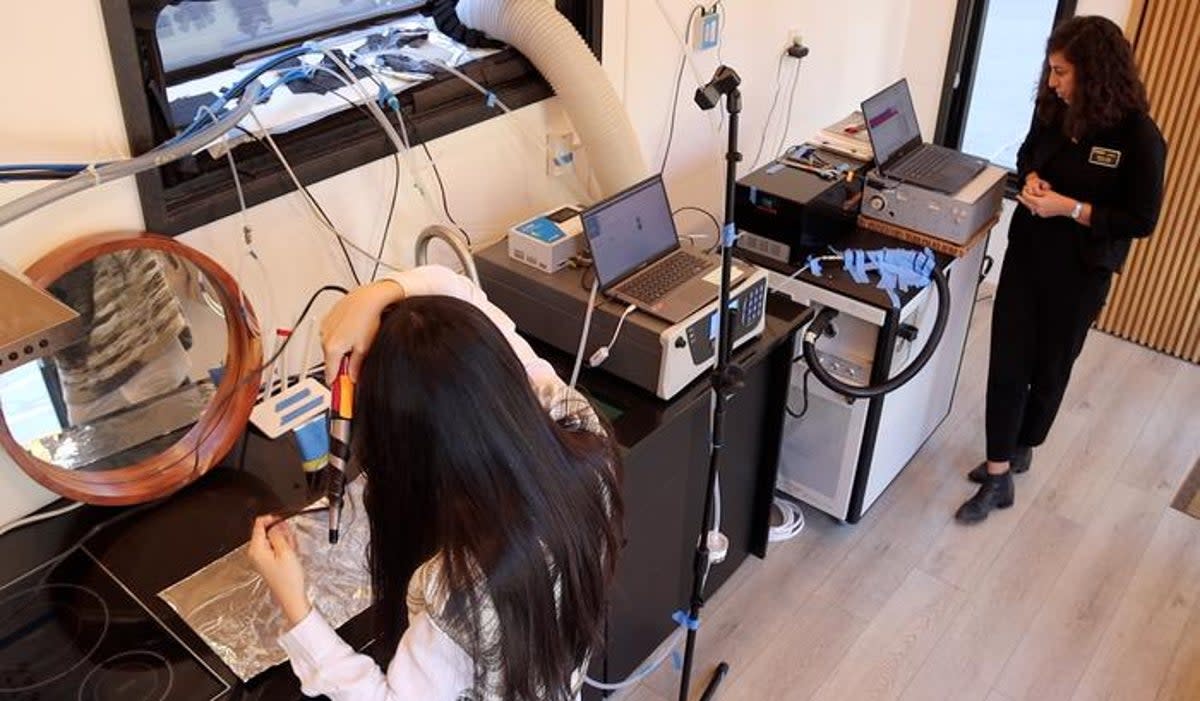Scientists find ‘extremely alarming’ dangerous chemicals in hair care products

People routinely using hair care products may be inhaling dangerous levels of chemicals potentially harmful to their health, an alarming new study warns.
The new research, published in the journal Environmental Science & Technology, found that several chemicals commonly emitted by hair care products linger in the air much longer after use.
Researchers, including those from Purdue University in the US, say a person can inhale up to 17 mg of potentially harmful chemicals in a single hair care session in their home.
“We found the results to be extremely alarming. We did not expect to see such significant emissions of volatile chemical mixtures from off-the-shelf hair care products during typical hair care routines,” study co-author Nusrat Jung said.
One of the chemicals decamethylcyclopentasiloxane, or D5 siloxane – commonly found in many personal care products – “has been found to lead to adverse effects on the respiratory tract, liver and nervous system of laboratory animals,” scientists warn.
“The use of the chemical in wash-off cosmetic products has already been restricted in the European Union because of this,” Dr Jung said
“Many of these products are scented, too, and some of the chemicals used to make these fragrances are potentially dangerous to inhale as well,” she added.
While previous research on animals has shown that the D5 siloxane chemical is “very persistent” in the environment and can accumulate in the body, “there is little information on its human impact,” scientists say.
“So we really have no idea to what extent the threat these chemicals pose when inhaled over a long period of time,” Dr Jung said.
While there have been tests into chemicals present in some types of “wash-off” products like shampoos, researchers say almost no studies exist for “leave-on” products like hair gels, oils, creams, waxes, and sprays.
Applying high heat to these chemicals such as from curling irons and hair straighteners can further release chemicals into the air, scientists say.
“In urban environments, this is especially significant as you will have hundreds – even thousands – of homes ventilating out potentially harmful chemicals into the urban atmosphere all in a short span of time as people get ready for work and school in the morning,” Dr Jung said.
Scientists say the “best solution” is to “simply not use these products”.
The next best thing, according to Dr Jung, is to have an exhaust fan running when using the products to minimise the amount of chemicals inhaled.
“Our model shows that turning on the bathroom exhaust fan can reduce D5 inhalation exposures by over 90 per cent,” she said.
“The effects on people and the planet need to be studied further and regulatory action needs to be taken,” Dr Jung added.


